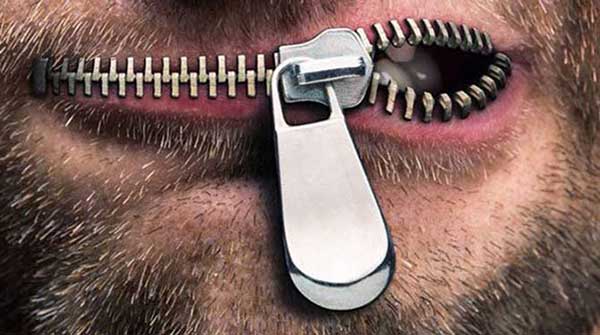One major point in the fight for Net Neutrality and freedom of the Internet is that users should be allowed equal access to all websites. That’s the ideal situation, but it’s not always the case. Plenty of governments around the world are known to censor content online.
Internet censorship is the practice of restricting online content creation, distribution, and access. Governments or private entities may censor online materials for safety and security practices as well as suppression of free speech and governmental dissent. Internet censorship occurs at different levels across the global Internet: countries such as Australia, Canada, or Greenland have very little or none, while China, Iran, Russia, and North Korea have significant to completely government-controlled Internet restrictions.
Different Ways By Which Government Censors The Internet
DNS Tampering
In countries where authorities have control over domain name servers, officials can “deregister” a domain that is hosting nefarious content. This makes the website invisible to users seeking to access the site because it prevents the translation of domain names to site IP addresses like 192.168.1.1. This is similar to receiving the wrong phone number of the person you wish to call.
IP Blocking
Governments with control over internet service providers can block certain IP addresses of websites they do not like. When you request access to a site, your request is monitored by surveillance computers, which check your request against a list of blocked IP addresses. If you are trying to reach one of these forbidden sites, the internet service provider will drop the connection, causing it to fail. For instance, in China, where international-gateway servers control the flow of internet information in and out of the entire country, requests to banned sites are intercepted by these mega-servers, which then interrupt the transmission by sending a “reset” request to both your machine and the one you wish to reach. This causes the connection to hang up, preventing access to the information you want. In addition, if the target Web site is hosted on a shared hosting server, all sites existing on the same server will be blocked as well, even if they are not targeted for filtering themselves.
Keyword filtering
IP address filtering only blocks explicitly blocked websites (or those that share the same server). But if you’re a government wanting to block all information on subject X, this can be a problem. Not only are there billions of websites, but new ones are being created all the time, making it nearly impossible to create a fully updated list of sites of forbidden content.
For a more powerful censoring technique, governments may use URL filtering. This mechanism scans the requested Uniform Resource Locator (URL) string for target words. If the URL includes forbidden terms, the connection will be reset.
Best Strategies For Bypassing Censorship Online
1. A VPN Service
A Virtual Private Network (VPN) acts as an envelope for Internet traffic. VPN service encrypts a user’s Internet traffic and routes it through their servers. That means they can get around almost every form of online censorship. They also protect against surveillance by local authorities.
Once a VPN is configured on your system (which needs to be your own or at least one you can trust not to be available to anyone else), you can visit webpages and even access other tools like your email and messaging apps.
2. Tor Browser
Tor is by far considered to be the most secure way to access the Web. It’s open-source software designed to give you anonymity online using a series of nodes in a network to redirect your Internet traffic. The Tor Browser makes use of the Tor anonymity network, with each web request sent back and forth between at least three nodes. Thanks to this, no single node in the chain knows both the destination and source of the signal, circumventing censorship and staying anonymous online. The only drawbacks are that it can be slow in terms of traffic, and more importantly, it’s somewhat complex and challenging for a new user to get acclimated to.
3. Proxy
Blocked sites can also be accessed using a standard proxy. System-wide (or browser-wide) proxies generally function similarly to VPNs, but they’re not as reliable — for example, they only work with specific programs, not every program on your computer. So if you want to pay for a service and send all your traffic over it, you’re better off with a VPN. However, if you want to access a blocked website quickly, you can try using a web-based proxy. There are many available.
Conclusion
You can use the internet for just about anything, whether it’s researching for a school project, playing a fun game, or reading about the latest celebrity gossip. But it turns out that freedom isn’t free, especially if you’re in a country like China or Russia. However, with a few simple workarounds, you can ensure that your internet freedom stays just that.
This content is a joint venture between our publication and our partner. We do not endorse any product or service in the article.


